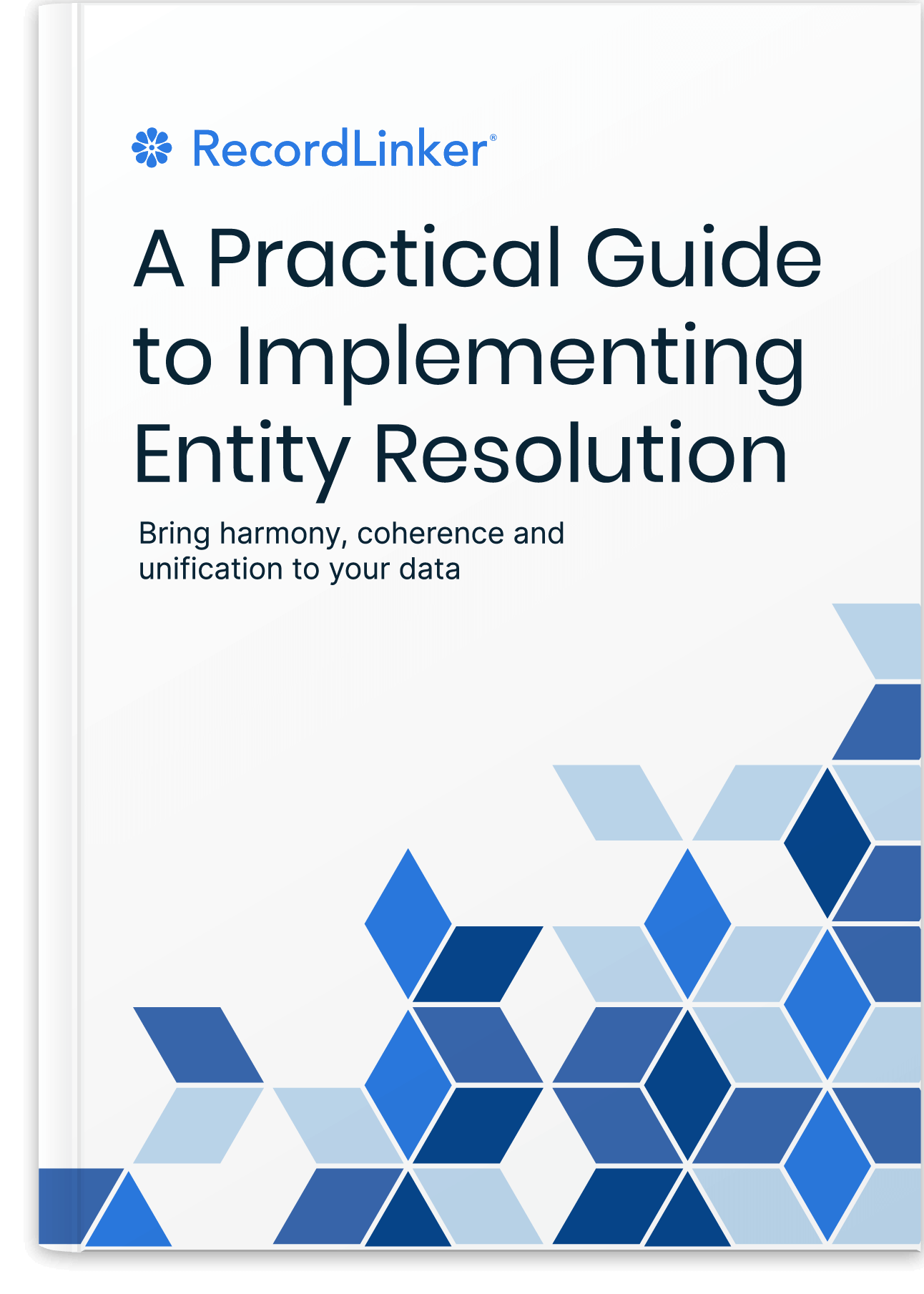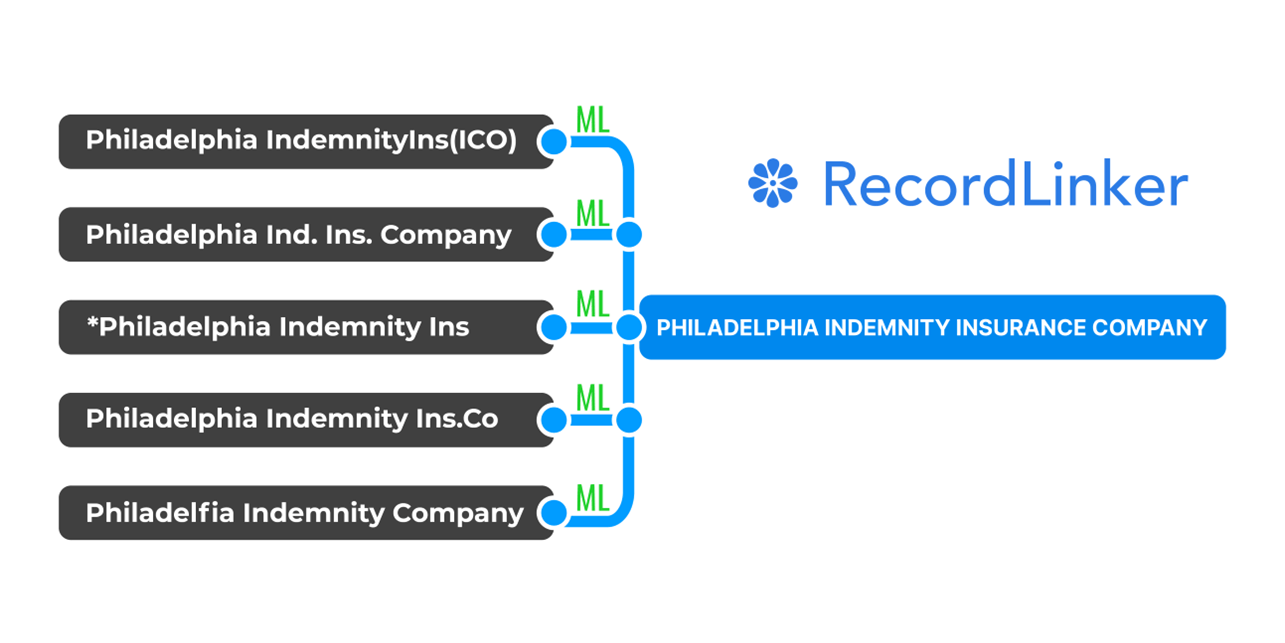ERP vs MDM: Which Is The Right Solution For Your Business?
If you’re looking to take control of your data management practices, you may have heard of both master data management (MDM) and enterprise resource planning (ERP) as solutions. But which one is right for your business? In this article, we explore the similarities and differences between ERP and MDM and provide guidance on choosing the best approach for your organization.

If your organization is struggling to take control of its data management practices, you’re far from alone. Data-related buzzwords abound, but a study by IDC found that poor-quality data, coupled with low trust in that data, are among the most significant operational costs business face in 2022.
You’ve likely heard both master data management (MDM) and enterprise resource planning (ERP) are touted as effective strategies for organizations aiming to get a handle on critical data, optimize processes, and empower decision-makers. But what is the difference between these two approaches, and which one has the most to offer your company?
In this article, we’ll look at some of the similarities and differences between ERP and MDM, and provide guidance on choosing the right path forward.
What Is Enterprise Resource Planning?
ERP is essentially a type of software that helps organizations manage their business processes. It’s an integrated system that covers everything from accounting and finance, to human resources and supply chain management.
The idea behind ERP is to have a single system that can be used by all departments within an organization, making it easier for them to share data and work together more efficiently.
ERP software is usually made up of modules, each of which covers a specific area of business. For example, there might be a module for accounting, another for inventory management, and another for customer relationship management (CRM).
These modules are then integrated into a single system, which can be accessed by users from any department. The result is a more streamlined and efficient organization, with better data management and collaboration.
What Is Master Data Management?
MDM, on the other hand, is not directly concerned with optimizing processes, but rather with the data that flows through those processes. It’s a method of centralizing and governing the “master data” within an organization, in order to ensure its accuracy, quality, and consistency.
Though exactly what constitutes “master data” will vary between organizations, it can be loosely defined as data that is critical for high-level decision-making, along with data that is core to multiple business processes. For instance, many businesses would consider basic information on customers, suppliers, and finances to be part of their master data.
Think of MDM as the foundation upon which a solid ERP system is built. Without clean and reliable data, an ERP system will not be able to function properly.
One of the main goals of MDM is to create a “single source of truth” for an organization. This means that all departments should be using the same, up-to-date data sets. This can be a challenge, as data is often siloed in different departments, with different formats and standards.
MDM helps to overcome these challenges by providing a centralized repository for all data, as well as tools and processes for managing that data. This ensures that all departments are working with the same information, in the same format, and can access it as and when needed.
The major issue to be aware of when first creating a centralized repository is the potential inconsistencies in data formatting that may arise when consolidating information from various sources. This can involve discrepancies in product codes, company names, or location names across the different systems.
RecordLinker is a tool specifically designed to solve this problem, offering a swift and user-friendly solution that integrates smoothly into your data management processes without causing disruptions.
Master Data Management can be further automated to ensure your data becomes as consistent as possible while business operations get streamlined. Learn what you can automate in MDM and understand what you should cosnider.

MDM or ERP: What Should You Choose?
Keep in mind that MDM and ERP are not mutually exclusive. In fact, they are quite complementary. Once you have implemented MDM and cleansed and normalized your data, you will be in a much better position to implement ERP successfully.
Both MDM and ERP can play a major role in an organization’s success, and many companies work toward implementing both. But figuring out where to start, and how far you need to go, can be a challenge.
Answering the following questions will help you determine where your priorities lie and how to get started.
What are your biggest pain points?
If your organization is struggling to clean up messy, siloed data and establish data governance, MDM should be your starting point. There would be little point in investing in an ERP system if the data it relies on is not yet accurate or consistent.
If you were to immediately implement ERP without first cleansing and normalizing your data, you would likely end up with duplicate data sets and a lot of errors. In other words, you would be trying to put the cart before the horse. Once you have a solid MDM strategy in place, you can then begin to look at implementing an ERP system.
The best way to do this is to use top-of-the-line resources such as RecordLinker. RecordLinker gives you the power to quickly, efficiently, and effortlessly link all of your records. It gives you full control over how records are linked–and the machine learning-powered system takes care of the tedious work to match them.
If, on the other hand, you already have an ERP system plagued by inefficiencies, it probably makes more sense to focus on ERP first. Once your ERP system is running smoothly, you can then begin to look at how MDM can further improve your organization’s data management.
How do you want to use your data?
Are you chiefly interested in gaining reliable information and insights from your data? Or are you aiming to use data to optimize core business processes?
ERP systems are built around operational processes, so if you want to use your data to streamline processes such as order fulfillment or invoicing, you should ultimately be working toward an ERP solution. On the other hand, if you want to use your data for things like analytics or marketing initiatives, then MDM should be your focus.
What is your budget?
Implementing an ERP system is a significant investment. If your organization does not have the budget for an ERP system, starting with MDM may serve you better.
A key advantage of MDM is that it can be implemented incrementally. For example, you can start by implementing an MDM solution for a specific department or data type. As your organization’s budget grows, you can slowly add more MDM capabilities.
Free Book: Practical Guide to Implementing Entity Resolution
Interested in implementing an in-house record matching solution with your own development team without using any outside vendors or tools?

ERP, on the other hand, is an all-or-nothing proposition. An ERP system needs to be comprehensive to be effective. If your organization does not have the budget for a decent ERP system, it is better to wait and save up for a worthwhile solution rather than implementing a partial ERP system.
In the meantime, gradually working toward MDM can help you get your organization’s data in order so that it will be ready for an ERP system when the time comes.
What kind of timeframe are you working with?
ERP systems take longer to implement than MDM solutions. A typical ERP project can last anywhere from one to three years, whereas MDM can be operational in a few months.
If you are working on a tight timeline, MDM may be the best place to start. MDM can provide quick wins that will help improve data quality and establish trust in the data, which can make it easier to get buy-in for a future ERP project.
Within minutes, systems like RecordLinker can efficiently clean up and organize all of your data, freeing up countless hours for you to be able to focus on other tasks.
What is your level of comfort with change?
ERP systems can have a major impact on organizational culture. They often require changes in the way people work, and they can be disruptive to the organization. For instance, employees may need to be trained on new processes and systems, and business processes may need to be redesigned.
If you are comfortable with change, and confident that your employees can adapt, ERP may be a good fit for your organization. If you are hesitant about change, or if you think your employees may have difficulty shifting gears quickly, starting with an incremental MDM solution may be more manageable. You’ll be able to introduce new concepts, expectations, and ways of working at a more gradual pace, and everyone will have a chance to adjust.

Using Your Data For Good
In short, ERP systems are designed to streamline business processes and improve efficiency. MDM solutions are designed to improve data quality and governance.
If your goal is to improve efficiency, ERP is the way to go. If your goal is to improve data quality, MDM is the better solution.
However, ERP systems are built on data. If your data is inaccurate, incomplete, or duplicative, your ERP project is likely to be unsuccessful. Take a good, hard look at the state of your data before you begin an ERP project. If you have a lot of work to do to clean up your data, you may want to consider starting with MDM.
Naturally, these ERP and MDM are complementary. If you are on the way to start your project journey with MDM or aiming to improve it, here is some curated further reading from our blog:
–3 Essential Master Data Management Principles For Every Business
– How To Select The Right Master Data Management Framework For Your Organization
– Master Data Management Implementation: Best Practices
– Automatic Master Data Management: How To Automate MDM – if you already have MDM in place and want to further streamline processes surrounding data management.
– Optimizing Your ERP’s Master Data For Better Performance – to ensure your ERP + MDM pairing delivers great performance without conflicts and issues that hinder growth.

Interested in improving the quality of your data, but don’t have the time or resources to create a master data management program from the ground-up?
RecordLinker is here to help. Our data integration and management platform can quickly connect your disparate data sources, identify and deduplicate records, and keep your data clean and up-to-date.


